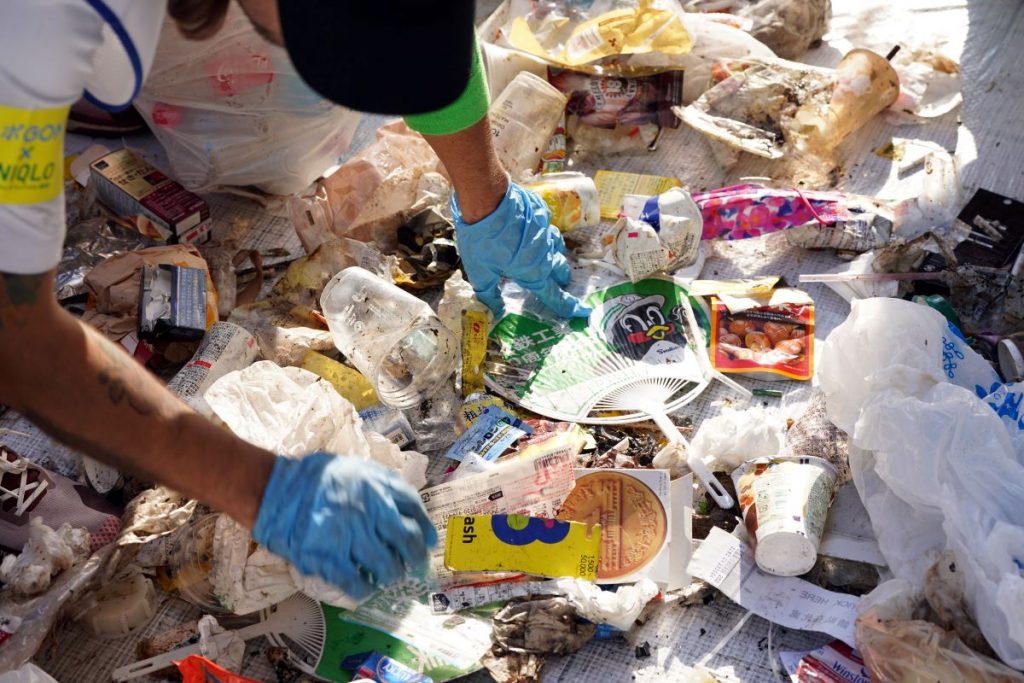
The Spanish team separates the garbage they picked up during the SPOGOMI World Cup.(©SANKEI by Kazuya Kamogawa)
Read the full story on Japan 2 Earth - SPOGOMI World Cup Raises Awareness on Marine Plastic Waste
Picking up litter on land to protect the oceans is one of the goals of the SPOGOMI World Cup 2023. Held for the first time in Tokyo on November 22, the event adds a sporting element to street cleanup with the aim of reducing marine plastic waste. Threats posed to marine life by plastic waste in the oceans have spurred a global movement that is gaining momentum. Japan has begun charging for plastic bags. But if even stricter international rules could be established, they could potentially transform our lifestyles.
Plastic as an Environmental Threat
A 2017 report compiled by the World Economic Forum entitled The New Plastics Economy (2017) estimated that 8 million tons of plastic waste is discharged into the ocean each year worldwide. Japan is considered responsible for between 20,000 and 60,000 tons.

One negative impact of marine plastics is the consequences on marine-related industries like fishing and tourism. The risk of damage to ecosystems by plastics, which remain in nature for long periods of time estimated to be several hundred years or more, is also a factor.
Continue reading the full story on Japan 2 Earth to learn more about how microplastics affect marine ecosystems.
And find more great articles on the environment and the challenges of achieving the SDGs on our new website Japan 2 Earth (J2E), sparking a transition to a sustainable future.
RELATED:
- Which Team's Best at Picking Up Litter? 21 Countries Compete in First SPOGOMI World Cup
- How Microplastics Travel to the Ocean Floor
- 500 Million Tons of Disappeared Plastic Waste: Flow into Oceans Is Just the Tip of the Iceberg
(Read the article in Japanese.)
Author: Yusaku Uchida








